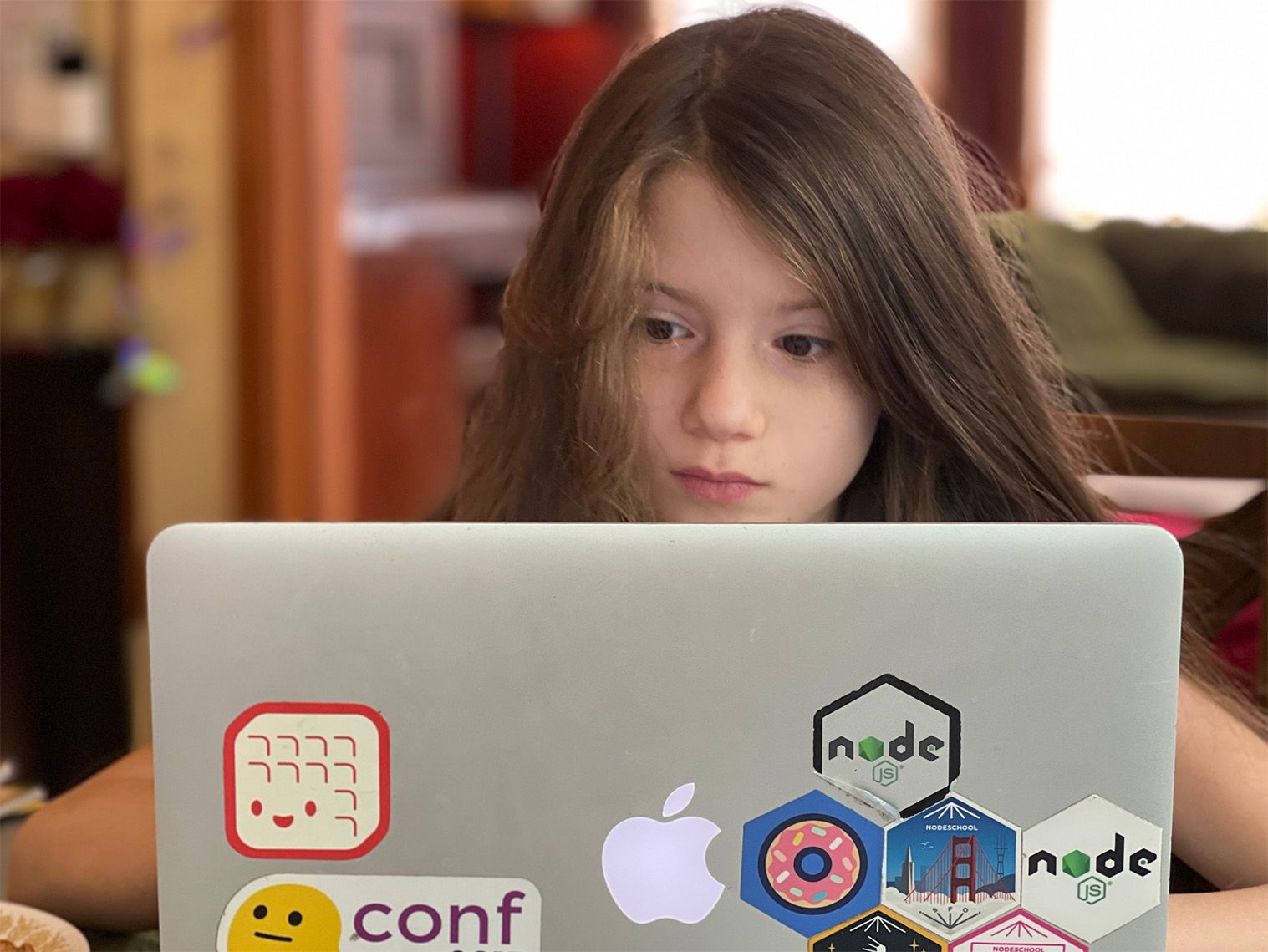Routine, flexibility, and hyperfocus
Understanding how an ADHD brain works best is baked right into how we structure our days—and how we sometimes toss that structure out the window.

When people ask what kind of homeschool learning structure helps for ADHD, I talk about how helpful it has been to have a regular, predictable routine. It is so much easier on the ADHD brain to have a routine. Every ADHD brain has slightly different support needs, and there are surely many folks who do better with days that are wide open, but in our family, we find that a regular, predictable rhythm in our day makes everything sing.
If your brain's executive functioning works well, it's easy to take it for granted. That's kinda the point of that part of the brain: it greases the skids and makes a ton of our decision-making frictionless. When it's working, you don't notice it. That's often not the case for ADHD folks: determining what to do, when to do it, planning, and even (especially) switching tasks is much harder for an ADHD brain. It truly is extra work, difficult work, and that extra work wears you out, leaving you frazzled. A frazzled brain will have a hard time functioning, and is more likely to struggle with emotional regulation; it's a drag.
Often the best way we can support ADHD differences is to take those usually-automatic executive function actions and create scaffolding to emulate them in the environment. That's where routine comes in: we can create habits that make those brain transitions much easier. If our morning starts at about the same time every day, and always holds the same daily rituals in the same predictable order, then it removes a ton of decision-making work for the ADHD brain—letting it instead spend its precious brain energy on doing the incredibly cool, creative, thoughtful stuff that ADHD brains excel at.
Routine lets ADHD brains be awesome.
However, there is another way that ADHD brains are different and awesome: hyperfocus.
Something a lot of people misunderstand about ADHD comes from its outdated name: ADHD is not a deficiency of attention, they've got TONS of attention, powerful attention, some might even say too much attention. ADHD is a difficulty in directing that attention. If something is not engaging enough to an ADHD brain, it will have a very hard time attending to it. It's not like how a neurotypical brain experiences boredom; it's next level. It's truly a biological inability to think about boring stuff.
But if something is interesting to an ADHD brain, it will have a much easier time latching on. And if something is VERY, VERY INTERESTING to an ADHD brain, well, that is what the brain is going to be doing, to the exclusion of all else, very intently, likely for hours and hours. That's hyperfocus.
Hyperfocus is flipping awesome. When folks talk about ADHD being a superpower, hyperfocus is usually what they're referring to. It has some obvious downsides: not being able to tear yourself away from something can mean important things get missed. But hyperfocus makes deep dives possible, intense creation and skill development, god-level productivity, deep understanding, it's just the ding-danged best.
Hyperfocus is the exception that proves the rule* about routine.
Today is a hyperfocus day here. Last night before bedtime, she started creating some sort of text-based adventure game. I have no idea what it is or what tools she's using for it, but she's in deep. So we did some of our morning routine, but we're setting aside our normal school stuff until she's had a chance to get to a good stopping point on her new project. That may not happen today, and that's okay.
This is all part of learning to love her different brain, and learning how to live with it. It's a balance, a dance, of learning when to scaffold it with structure, and when to let it fly. As an adult, she'll have to learn how to best harness her hyperfocus capabilities, and how to communicate and negotiate that with others. The best way to learn those skills is with lots of experience. I'm happy to be able to give her these years of experience working with her brain, instead of against it.
* An aside about the phrase "the exception that proves the rule," because language is fun: there's a whole Wikipedia article about the different ways this phrase gets used. Some of it hinges on the older use of the word "proof": today we think of "proof" as evidence, but an older meaning of the word is a test. See also, "the proof of the pudding is in the tasting" (the test of the thing will come in the trying of it), which often gets mangled into "the proof is in the pudding."

